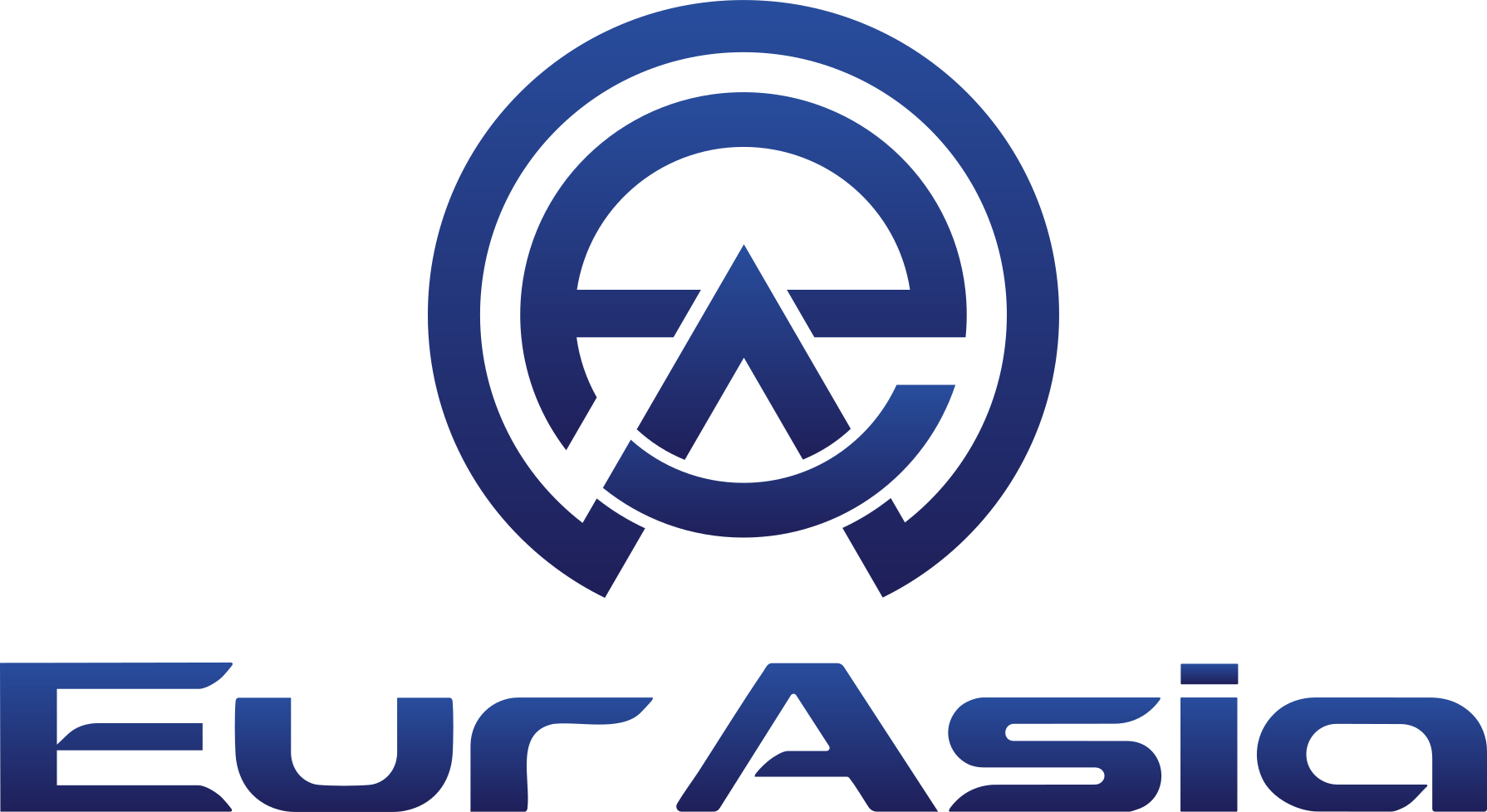The United Arab Emirates is no longer an oil monarchy relying on hydrocarbon revenues. In 2025, the UAE is a global financial and business center, as well as the largest logistics hub at the crossroads of routes between Africa, Europe, and Asia. For large companies and multinational corporations, the Emirates are becoming a convenient platform for business scaling, promising investments, and strengthening ties with the Arab world. Startups and family businesses find a favorable environment here for rapid growth and access to international markets.
However, even with low taxes and simplified capital movement, launching a business is still associated with certain risks. Lack of knowledge of local legislation and cultural specifics, difficulties with opening bank accounts, or production localization can delay the process and lead to financial losses. In the Persian Gulf countries, where much relies on personal relationships, the absence of business connections can also slow down a company's development.
In this article, we will cover:
- Why launching a business in the UAE is a strategic step
- Business prospects in the Emirates
- Legal framework and taxation in the UAE
- Company registration specifics and legal nuances
- Employee hiring and visas in the UAE
- EurAsia Gulf - your partner for entering the UAE market
- How to avoid common mistakes and accelerate business launch
Why launching a business in the UAE is a strategic step: facts and figures only
The UAE has built a modern, diversified economy where tourism, services, fintech, logistics, high technology, and even the aerospace industry develop on equal footing. In 2025, the country became one of the most stable and attractive jurisdictions for business, combining political stability, modern infrastructure, and flexible conditions for investors.
Key facts:
- Economy and growth: GDP exceeded $500 billion, with a 2025 growth forecast of around 4%. Oil exports in 2024 grew by 14.6% and exceeded 800 billion AED.
- Developed domestic market - GDP per capita exceeds $49,000, higher than in France and Italy.
- Reliable jurisdiction, transparent business environment - foreign direct investment in 2023 exceeded $23 billion.
- Liberal tax policy: 0% corporate tax in free economic zones, 0% VAT rate.
- Infrastructure and logistics provide access to African, Asian, and European markets within a 4-8 hour flight.
- 85% of the population are expatriates, creating a flexible labor market;
- Investors and specialists have access to a long-term Golden Visa (up to 10 years).
- Over 180 countries have close trade ties with the Emirates.
Still not convinced? Let's look at the facts in more detail so you can assess all the business opportunities in the Emirates:
Political Stability
The UAE is a federal constitutional monarchy. It consists of seven emirates with a certain degree of economic and political autonomy.
The state structure largely relies on relationships between influential families from different emirates, whose heads sit in parliament and hold government positions. Although the system may seem archaic, important decisions are made jointly, considering the interests of each clan when distributing income - a social consensus has been reached, and the risk of political unrest is excluded.
The UAE is a safe haven for capital with laws protecting property rights. This is confirmed by high investment activity - foreign investment in 2023 exceeded $23 billion, making the UAE the largest investment center in the region.
Logistics and Infrastructure
The UAE is one of the most developed logistics and infrastructure centers in the world. An ecosystem has been created here where a company can connect many business services, rent an office with minimal costs, and launch "turnkey" in a matter of weeks, not months.
Facts about UAE logistics and infrastructure:
- Jebel Ali Port (Dubai) - the largest in the region. Connects the UAE with the main trade routes of Europe, Asia, and Africa;
- Dubai (DXB) and Abu Dhabi (AUH) International Airports serve 120 million passengers and millions of tons of cargo annually. Direct air connections (passenger and cargo) with over 200 cities worldwide. Emirates airline is based here.
- Industrial parks, free economic zones, and office hubs provide businesses with everything they need: offices, warehouse complexes, exhibition halls, and hotels - you can arrange contractors, find a local partner, and select premises in a matter of days.
- High standards of the banking system and transparent procedures allow for quick account opening, attracting investments, and managing international settlements.
In the Emirates, barriers to the movement of capital, goods, and "brains" have been eliminated. This makes the country a unique platform for companies looking to scale into the Middle East, Africa, and Asia markets.
Flexible Visa and Residency System
The rules for relocation and obtaining legal status in the Emirates are simplified for both regular workers and investors. Fact: only about 12% of the country's population are native citizens. 85% of the population are expatriates. A multicultural environment and a large pool of qualified personnel have been created in the UAE.
- investors can obtain long-term visas, including the 10-year Golden Resident Visa;
- straightforward visa processing for employees, private entrepreneurs, cultural figures;
- privileged conditions for qualified specialists, from top managers to researchers and engineers.
This system makes emigration and business expansion as comfortable as possible: companies can quickly attract personnel, and entrepreneurs and investors receive long-term guarantees of residence and development in the UAE.
Transparent Business Conditions and Tax Benefits
The UAE remains one of the world's most attractive jurisdictions for business due to transparent laws, flexible tax policies, and support for foreign investors.
Benefits of doing business in the UAE:
- Tax optimization - there is no personal income tax in the country, low corporate tax rate (9% on mainland, 0% in many Free Zones);
- Foreign ownership: ability to register companies with 100% foreign ownership in all jurisdictions - full control over the business without the need to share ownership with a local partner;
- Speed and convenience: business registration and licensing take days, not weeks - capital starts working here immediately, without delays;
- 100% capital repatriation: free withdrawal of profits and capital without restrictions or additional fees;
- Government support programs: active investments in logistics, fintech, IT, biotech, "green" technologies, media, and creative industries.
The UAE ranks in the top 20 countries for ease of doing business (Doing Business), attracting over $20 billion in foreign investment annually. The country is becoming a convenient platform for entering new markets, primarily the Middle East and North Africa, providing companies with opportunities for scaling, tax optimization, and accelerated start-up.
Economic Stability and Growth
Economic diversification, capital protection, transparent laws and simplified business rules with tax benefits, as well as developed transport and logistics infrastructure - all these factors have laid a solid foundation for stable development and made the UAE one of the fastest-growing economies in the region.
Key indicators:
- Non-oil exports in 2024 exceeded 800 billion AED, this market grew by +14.6% over the year;
- The country's GDP in 2024 was over $500 billion, with a growth forecast for 2025 of around 4%;
- The UAE ranks among the top countries for economic resilience and attractiveness for foreign investment.
Economic growth attracts new investments. Leading economic zones - Abu Dhabi Global Market (ADGM) and Dubai International Financial Centre (DIFC) - have become centers of international business, where hundreds of new companies register. Foreign companies have access to transparent working conditions, tax benefits, access to global markets, a high level of services, and business amenities here.
Promising Domestic Market
Stable economic development directly impacts the population's purchasing power, ensuring a high standard of living and creating a favorable environment for business. The UAE's domestic market numbers about 10 million people, 85% of whom are expatriates. This creates a multicultural, open-to-new, and solvent demand for food, technology, educational services, and entertainment.
Along with the growth of the consumer market, e-commerce is developing rapidly. Annual growth of over 20% per year, e-commerce turnover exceeds $12 billion. Even small companies can scale quickly using the UAE's developed online sales platforms and efficient logistics.
Business opportunities in the UAE:
- developed sales channels for different business segments. Marketplaces, international exhibitions, and local business events help quickly find clients and partners.
- Strategic platform. By launching a project in the UAE, companies can test products and then scale to the markets of the Middle East, North Africa, and South Asia.
- High audience income. An affluent population and multicultural environment are excellent conditions for launching new goods and services, including in the premium segment, and scaling projects.
In the UAE, Russian and European companies get a stable and transparent jurisdiction for developing an international brand. Tax benefits and access to a solvent audience are a bonus.
These factors make the Emirates not just a "showcase of the Middle East," but a stable and predictable market for investors and entrepreneurs.
EurAsia Gulf helps companies utilize all the advantages of the jurisdiction: from choosing a niche to integrating into the local business community.
Prospects for entering the international market
Business in the UAE allows for quick adaptation of the company to an international audience and, in perspective, scaling to global markets.
Facts about the global prospects of business in the UAE:
- Access to the Gulf and Middle East markets. Well-established logistics chains with simplified bureaucratic procedures for selling goods and services from the Emirates to Saudi Arabia, Qatar, Bahrain, Kuwait, Egypt, and North African countries.
- Trade links with the world. The UAE actively trades with over 180 countries worldwide (out of 187 UN members). Dubai is among the top 5 global re-export centers;
- Up to 25% of all Middle East cargo flows pass through Jebel Ali Port (over 15 million containers per year). This provides businesses with unique opportunities for scaling to any international markets.
- International exhibitions and conferences. Dozens of major industry events (GITEX, Gulfood, Dubai Airshow, etc.) are held annually in Dubai and Abu Dhabi, where manufacturers, intermediaries, and investors from around the world meet. European and Russian businesses actively use the platform for presentation and partner search.
For companies from Russia, Europe, and Asia, the UAE is becoming a stable and profitable platform for entering foreign markets, allowing them to scale operations, reduce risks, and utilize modern financial and logistics tools.
For Russian companies seeking new export channels and a stable jurisdiction for developing an international brand, the UAE market is not just an alternative, but a strategic choice.
Legal Framework and Taxation in the UAE
The UAE builds its business legal framework to ensure transparent conditions for international and local companies while maintaining regulatory flexibility.
Company Ownership
As of June 1, 2021, the requirement for mandatory local sponsor participation has been abolished in the UAE. Foreign investors can own 100% of companies on the mainland in most economic sectors.
This has simplified business registration, bank account opening, and reduced legal barriers.
Free Economic Zones (Free Zones)
Each zone (e.g., DMCC in Dubai, JAFZA in Jebel Ali, ADGM in Abu Dhabi) operates autonomously. All zones offer:
- tax incentives;
- 100% capital repatriation;
- simplified licensing procedures;
- developed infrastructure for international trade.
Important update. Decision No. 11 (2025) allowed companies from Free Zones to legally conduct activities on the mainland upon obtaining additional licenses from DED/DET. This significantly expands business opportunities.
ADRA Initiative (Abu Dhabi Registration Authority)
Introduces centralized registration; most procedures are moved to an online platform where electronic document management is available.
Benefits of ADRA for business from Russia and Europe in the UAE:
- regulation became more transparent and faster: minimized corruption risks, reduced license issuance times;
- the platform offers additional services, including analytics and research necessary for strategic decision-making.
Taxation
- income tax (on personal income of individuals) - 0%.
- corporate tax - 9% and only on profits exceeding 375,000 AED (≈ $100,000).
- a preferential regime of 0% corporate tax applies in many Free Zones.
International Agreements
The UAE has concluded over 135 double taxation avoidance agreements, minimizing fiscal risks and simplifying transnational settlements.
The liberalization of rules, flexibility of Free Zones, and minimal tax burden - all this turns the UAE into one of the most convenient and profitable hubs for launching and scaling an international business.
Nuances of Launching a Business in the UAE
Despite transparent and simplified conditions, no country is completely free of bureaucracy. Launching a business in the Arab Emirates has its own specifics that are important to understand and consider.
In which zone to register a company: A Guide to UAE Jurisdictions
The UAE has three legal regimes for business operating simultaneously. Such flexibility allows entrepreneurs to select optimal conditions for conducting activities, optimize the tax base, and significantly simplify operational processes. But it's important to consider: an error in choosing the jurisdiction can lead to account blocking or restricted access to needed markets.
How to choose a jurisdiction? Our expert, who provides support with company licensing, has prepared a brief guide to jurisdictions for business in the UAE.
What it offers:
| Requirements that must be met to open a company in the UAE:
| Who it suits:
This jurisdiction provides direct access to the most profitable segment - government contracts and local clients. Allows selling goods and providing services on the mainland part of the Emirates without restrictions. | Risk: higher tax burden and reporting obligations | |
What it offers: There are over 45 free economic zones in the UAE, each with its own rules and benefits. Advantages of starting a business in a "free zone":
The financial centers of Abu Dhabi (ADGM) and Dubai (DIFC) apply separate legal systems based on English common law, making them attractive for international projects in finance, technology, and investments. | Who it suits: Business in a Free Zone is the optimal choice when the priority is simple company setup in the Emirates for export and international trade, including in Arab country markets. Suits:
| Benefit of registering a business in the UAE in a free economic zone: simple registration, zero tax burden, access to global markets. | Risk: limited opportunities for direct work with local clients. | |
This jurisdiction is intended for holdings, asset management, real estate ownership, and launching various online projects related to finance, content production, and the entertainment industry. | Advantages:
| Who it suits: The offshore company legal regime is chosen for asset protection and tax planning. | Limitations:
|
Choosing a Legal Form for Business in the UAE
Entering the Arab Emirates market is also associated with choosing the most suitable legal form for the business. This directly affects obtaining a license, product certification possibilities, taxes, and business process management. It determines what activities will be available within the UAE.
Main forms:
- Limited Liability Company (LLC - analogous to a Russian LLC) - a popular model among Russian entrepreneurs. Available activities for this form include: trade of goods requiring certification, service provision, e-commerce. Requirements for company registration: office lease agreement, legal address, and presence of a local partner. After this, the company is officially registered.
- Public Joint Stock Company (PJSC - analogous to a PJSC) - used for large projects where the ability to quickly attract investments is important. This form allows listing shares on stock exchanges and working with a large number of investors;
- Branch of a Foreign Company - a solution for Russian companies wanting to start their business in Middle Eastern countries without creating a separate legal entity. The branch can conduct the same activities as the parent company. However, separate licensing, document legalization, and opening a bank account with a local bank are required.
- Representative Office of a Foreign Company - most often used for brand promotion, including advertising, and partner search. A representative office cannot conduct full-scale business; many processes will be limited. Ideal for introducing a business to the Emirates market.
- Free Zone Company - a company can be registered in one of the FEZs. This format allows for tax benefits, simplified bureaucratic procedures, and avoidance of customs duties.
- Offshore - registering an offshore company is used for managing business outside the UAE and tax optimization.
Entrepreneurs planning to enter the Arab Emirates market must choose one format considering their strategy, business environment, and goals. Our specialists will help prepare the necessary documents, handle legalization, obtain residency visas, and provide a free consultation to ensure your business in the UAE develops without delays.
Company Registration, Licenses, and Bank Accounts in the UAE
The first step to entering the UAE market is company registration. As mentioned above, a business can be established on the mainland or in one of the Free Zones. The choice of jurisdiction depends on the company's strategy:
- Mainland - if working with the local market and government structures is planned.
- Free Zones - if the main focus is on international trade and export.
After registration, it is necessary to obtain the appropriate license, which defines the company's field of activity:
- Commercial - for trading goods and services;
- Industrial - for manufacturing and logistics;
- Professional - for consulting, IT, and other specialized services.
These are universal licenses that confirm your company operates officially.
For highly specialized activities, such as in education or medical services, additional licenses will be required. These are obtained after company registration.
Risks at this stage:
- Incorrect choice of license type limits business opportunities.
- Errors in specifying activities can lead to fines or inability to operate fully.
It is important to determine the type of activity in advance and consider legal requirements to obtain the necessary license.
Opening a Bank Account
An equally complex step is opening a bank account with banks in Dubai or Abu Dhabi.
Local banks require a full set of documents for corporate accounts in the UAE:
- Company incorporation documents;
- Licenses;
- Proof of office address.
The verification can take from several weeks to several months. Without professional assistance, the process becomes more complicated and often leads to rejections. If mistakes are made, correcting the consequences will be difficult.
How EurAsia Gulf Helps Companies with Registration in the UAE
EurAsia Gulf provides support at all stages
- Choosing a jurisdiction in the Emirates for business;
- Company registration in the UAE;
- Obtaining a commercial license in Dubai, Abu Dhabi, other emirates;
- Preparing documents for UAE banks.
With us, your company will have a fast and secure start in the UAE market. This saves time and resources. Importantly, you will avoid mistakes that could become serious obstacles.
Employee Hiring and Visas in the UAE
HR policy in the United Arab Emirates has its own specifics.
Local residents mainly hold managerial positions, work in the public sector, or develop their own businesses. The majority of mid- and low-level specialists, as well as service sector workers, are expatriates.
Therefore, any business in the Emirates faces two tasks:
- Finding foreign specialists
- Processing visas and work permits.
Main Types of UAE Visas for Business and Employees
What is important to know when applying for work visas in the UAE
The procedure for obtaining work permits and issuing visas in the UAE is simplified, however, it requires strict compliance with rules. Companies must consider:
- quotas for jobs;
- minimum salary requirements;
- sponsorship conditions.
Any error in documents can delay business launch for months. The solution is working with an experienced partner who understands the legislation well and has contacts in government structures.
Support from EurAsia Gulf guarantees the correct choice of visa package and quick completion of all procedures, allowing business in the UAE to develop without delays.
EurAsia Gulf — your partner for entering the UAE market
EurAsia Gulf is a business platform that unites the interests of investors, business representatives, and government bodies, helping foreign entrepreneurs and investors successfully enter the UAE market and establish themselves in the region.
What we do for clients
- Organize B2B and B2G meetings with potential clients and government representatives.
- Accompany company registration and business setup in Dubai or another free zone.
- Consult on jurisdiction selection (Mainland, Free Zone, Offshore) and licenses.
- Help open bank accounts, arrange visas, and prepare the full document package.
- Promote clients' business through business events, publications, and marketing channels.
Advantages of working with EurAsia Gulf
- Time and cost savings. We already have established processes and prepared market entry strategies for the Emirates — you get ready-made turnkey solutions.
- Risk minimization — thanks to a proven network of contacts in government structures. No delays with entering the UAE market.
- Support at all stages — from market research to going international. You get ready-made insights necessary for company development and scaling.
- Brand enhancement — promotion through exhibitions, conferences, and business magazines. We help find clients, attract investors and partners.
Support from EurAsia Gulf allows you to go through all key stages of market entry — from company registration and hiring employees to establishing business connections.
With us, you avoid common mistakes, launch your business faster, and get a solid foundation for its large-scale growth.
How to prepare for entering the UAE market
A successful start in the Emirates depends on quality preparation. Mistakes at the initial stage can lead to delays, account blocking, or activity restrictions. To avoid this, it is important to work out key steps in advance:
- Conduct market analysis and define the target audience — understanding the needs of the local and regional market will help choose the right niche and entry strategy;
- Choose a jurisdiction and the corresponding license — the license determines which services or goods you can offer and where you can operate (within the country or abroad);
- Prepare the document package for registration and opening a corporate account — at this stage, it is important to fulfill all regulator requirements;
- Study the rules of operation in the chosen zone — the choice between Mainland, Free Zone, or Offshore affects the tax burden and access to clients;
- Secure the support of experts who will help you through all stages — support from specialists allows you to avoid bureaucratic errors and speed up the launch process.
EurAsia Gulf will take on all these tasks, providing comprehensive support and access to business contacts. You save time, reduce risks, and get a quick market entry with a ready-made infrastructure for business development.
Conclusion
Entering the UAE market means gaining a competitive advantage in one of the world's most promising regions. New rules of international trade are being created here, world-scale investment projects are being formed, and flexible conditions for companies of any level are in place.
But launching a business in the Emirates requires knowledge, experience, and connections. Therefore, the best solution for foreign entrepreneurs is to work with a partner who understands the specifics of the region.
EurAsia Gulf will help you open a business in Dubai, register a company in a free zone, obtain a license, open a bank account, and reach a new level of international business.
Take the first step today — contact EurAsia Gulf. Leave a request, and our representative will contact you and provide a free consultation on opportunities for entering the UAE market.











